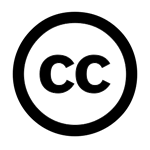Carly Finseth is a PhD student in Technical Communication & Rhetoric at Texas Tech University. She has taught first-year composition at both Clemson University and at Texas Tech University, and is currently investigating how to teach an introductory technical communication course as a game. In 2011 she won Clemson University's Thomas E. Douglass Teaching Award for Excellence in Teaching. Her research interests include teaching writing, online education, gaming studies, knowledge creation through play, usability, and open source technologies and culture.
Introduction
If this article were open source you could change this sentence. You would be free to rearrange, remove, redistribute, or otherwise modify anything in this work.1 Your motivations would be fueled by a greater good, a desire to improve upon the knowledge and scholarship presented. Even so, you would still be modifying this work to then republish for someone else to read, learn from, and perhaps change even further. The words I’ve written may become diluted, changed to be something different from my own; my statements and research would likely be either refuted or celebrated, within the actual text itself. And yet, as an author functioning within an open source notion of what it means to compose and create, I would be okay with that. In fact, I would encourage it. After all, that’s how an open source community operates and thrives. I would offer my research and opinions and you would offer yours until, finally, we could arrive at some level of consensus.
For most of us in academia this notion of allowing others to modify and redistribute our work seems outrageous. Sure, academics are good at sharing: ideas, frustrations, citations. But the written word has become almost sacred in academic circles; we hold our alphabetic compositions firmly to our chest. We write to express ourselves, we write to communicate our research, we write to add bulk to our tenure files. We certainly don’t write to simply open up our ideas and our words for others to modify and reuse. But what if we did? What might this mean for composition and for the teaching of writing? How might we use notions of ‘open’ to enhance our own forms of composition, as well as broaden our ideas of authorship? How might it extend traditional ideologies of collaborative academic scholarship? And what lessons might we learn from open source culture and practices that could be applied to the writing classroom? The answers to these questions – and more – form the beginning discussion for an ‘Open Source Composition Space’: a place where writing is collaborative, where authorship is negated by ideals of shared intellectual property, and where students and teachers can learn from each other in a safe and supportive environment.
Some may argue that the sharing of research and ideas has always been the foundation of academic scholarship. If so, I argue that we need to get back to the basics of what it means to compose, create, and teach writing. Imagine what the power of open source collaboration, creation, and revision could mean to the future of teaching writing. The possibilities, I imagine, could be awe-inspiring.
1 By "open source" I am referring to the open source software community. Therefore, to proceed with the metaphor, I am assuming that this thesis would be published under GNU/GPL (General Public Licensing). This is different from Creative Commons licensing, in which whether or not the text would be able to be modified would depend upon which Creative Commons license is in effect. See Lowe (2010) for an interesting discussion on Creative Commons and open educational licensing.
<< Previous: Home Page
Next: What is 'Open Source'?
